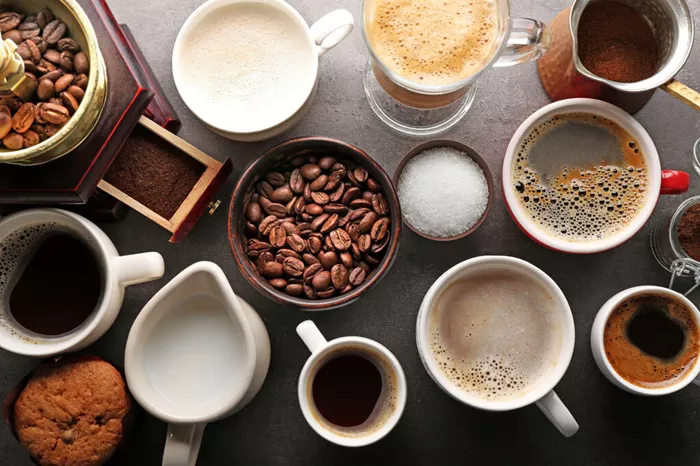Espresso powder is a concentrated form of coffee that plays a significant role in cooking and baking. It is different from regular coffee grounds or instant coffee. In this article, we will explore what espresso powder is, its uses in recipes, and tips on how to incorporate it into your dishes.
Understanding Espresso Powder
Espresso powder is made from coffee beans that have been roasted, ground, and brewed to create espresso. After brewing, the liquid is evaporated, leaving behind a fine powder. This process intensifies the flavor and makes it much more potent than regular coffee.
Characteristics of Espresso Powder
Concentration: Espresso powder is more concentrated than regular coffee. A small amount can add a deep coffee flavor to dishes.
Flavor Profile: It has a rich, bold flavor with notes of chocolate and caramel. This makes it ideal for enhancing the taste of various recipes.
Solubility: Unlike regular coffee grounds, espresso powder dissolves easily in both hot and cold liquids, making it versatile for different culinary applications.
See Also: Who Traded Coffee First?
How to Use Espresso Powder in Recipes
Espresso powder can elevate your cooking and baking in various ways. Here are some common uses:
1. Baking
Espresso powder is often used in baking to enhance the flavor of desserts. It pairs well with chocolate, bringing out its richness.
Chocolate Cakes: Adding espresso powder to chocolate cake recipes can deepen the chocolate flavor. A teaspoon or two mixed into the dry ingredients can make a noticeable difference.
Brownies: For brownies, espresso powder can intensify the chocolate taste. Mix it into the batter for an extra layer of flavor.
Cookies: Espresso powder can also be added to cookie dough, especially in recipes that include chocolate chips. It complements the sweetness and adds complexity.
2. Sauces and Glazes
Espresso powder can enhance the flavor of sauces and glazes. It works well in both sweet and savory applications.
Barbecue Sauce: A teaspoon of espresso powder in barbecue sauce can add depth and richness. It complements the smoky flavors of the sauce.
Chocolate Sauce: Incorporating espresso powder into chocolate sauce can create a luxurious, deep flavor that is perfect for drizzling over desserts.
3. Drinks
Espresso powder can be used in beverages to create rich coffee flavors.
Coffee Drinks: You can mix espresso powder with hot water to make a quick espresso shot. This can be used in lattes, cappuccinos, or other coffee drinks.
Smoothies: For a morning boost, add a teaspoon of espresso powder to your smoothie. It pairs well with banana, chocolate, and nut flavors.
4. Savory Dishes
Espresso powder is not limited to sweet recipes. It can also enhance savory dishes.
Meat Rubs: For grilled meats, espresso powder can be included in spice rubs. It adds a unique flavor that complements beef, pork, or chicken.
Chili and Stews: A small amount of espresso powder can enhance the richness of chili and stews. It adds depth to the overall flavor profile.
How to Choose Espresso Powder
When selecting espresso powder, consider the following:
Quality: Choose high-quality espresso powder for the best flavor. Look for brands that use 100% Arabica beans.
Form: Espresso powder comes in different forms, including fine powder and granules. Fine powder is more concentrated, while granules may require more to achieve the same flavor.
Packaging: Ensure the packaging is airtight to maintain freshness. Espresso powder can lose flavor over time if not stored properly.
How to Store Espresso Powder
Proper storage is essential to keep espresso powder fresh. Follow these tips:
Airtight Container: Store espresso powder in an airtight container to prevent moisture and air exposure. This helps maintain its flavor and aroma.
Cool, Dark Place: Keep the container in a cool, dark place, away from heat sources and direct sunlight. A pantry or cupboard works well.
Avoid Refrigeration: While some coffee products benefit from refrigeration, espresso powder can absorb moisture and odors. It is best to store it at room temperature.
Espresso Powder vs. Instant Coffee
Many people wonder about the difference between espresso powder and instant coffee. Here are the key distinctions:
Flavor: Espresso powder has a more intense and richer flavor compared to instant coffee. This is due to its concentrated nature and the brewing process.
Usage: Espresso powder is often used in baking and cooking to enhance flavors, while instant coffee is primarily used for making coffee beverages.
Preparation: Espresso powder is made from brewed espresso, whereas instant coffee is typically made from brewed coffee that is then dehydrated. This difference in preparation affects the flavor and potency.
Common Questions About Espresso Powder
1. Can I use regular coffee instead of espresso powder?
While you can use regular coffee, the flavor will not be as concentrated. If you decide to substitute, use a larger amount of coffee grounds, but be aware that the taste may differ.
2. Is espresso powder caffeinated?
Yes, espresso powder contains caffeine, similar to brewed espresso. The caffeine content depends on the amount used in your recipes.
3. How much espresso powder should I use?
Start with a teaspoon in recipes and adjust according to your taste preferences. Remember that a little goes a long way due to its concentrated flavor.
4. Can I make my own espresso powder?
Yes, you can make espresso powder at home by brewing espresso and then dehydrating it in an oven or dehydrator. However, it may take some time and effort to achieve a fine powder.
Conclusion
Espresso powder is a versatile ingredient that can enhance the flavors of various dishes, both sweet and savory. Its concentrated nature allows for a bold coffee flavor that elevates recipes to new heights. Whether you’re baking chocolate cakes or creating savory meat rubs, espresso powder can bring depth and richness to your culinary creations.
Related Topics:
Who Dominates the Coffee Market?
What Factors Influence the Price of Coffee?
Which Country Bean Coffee is Best?


